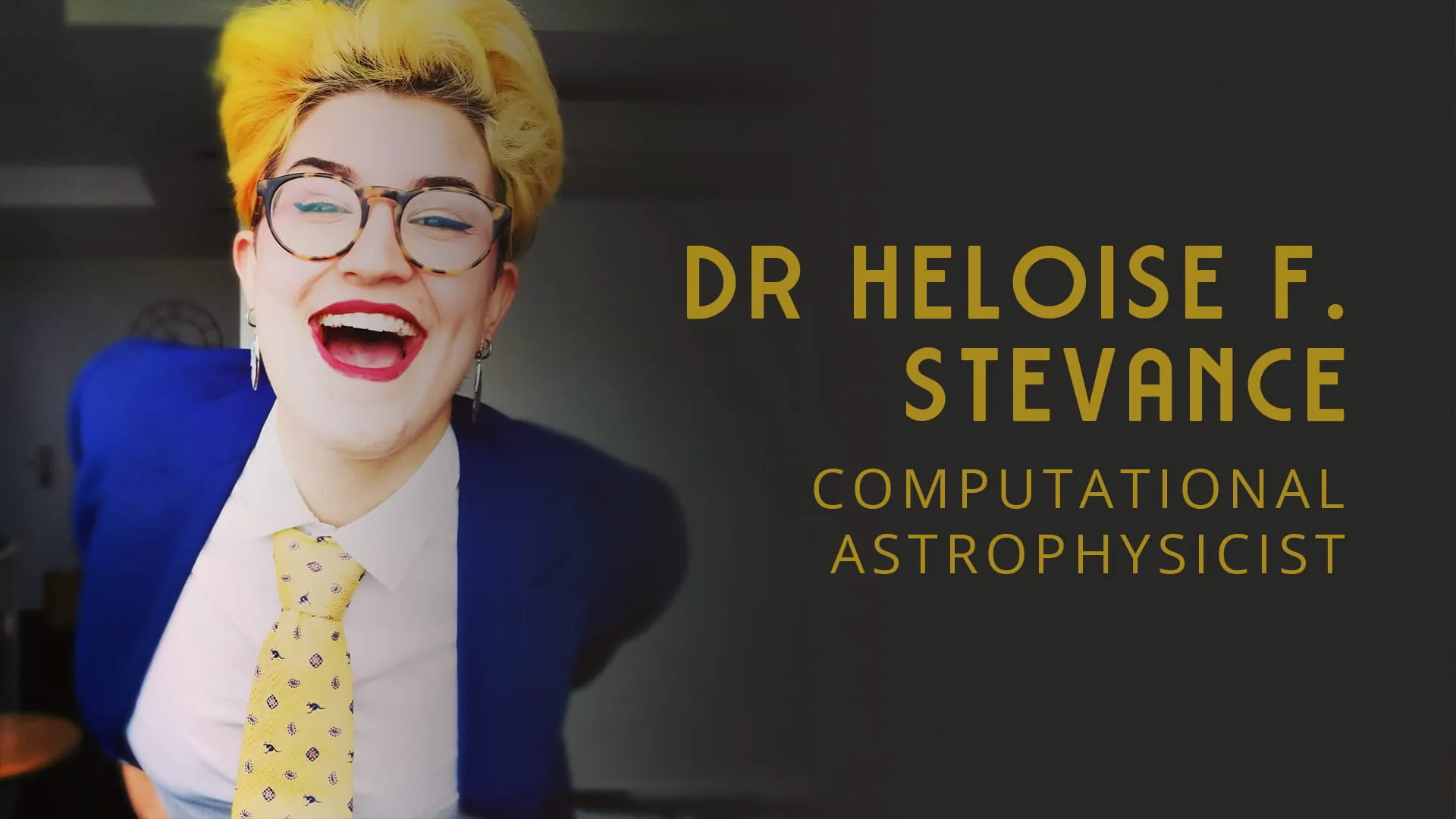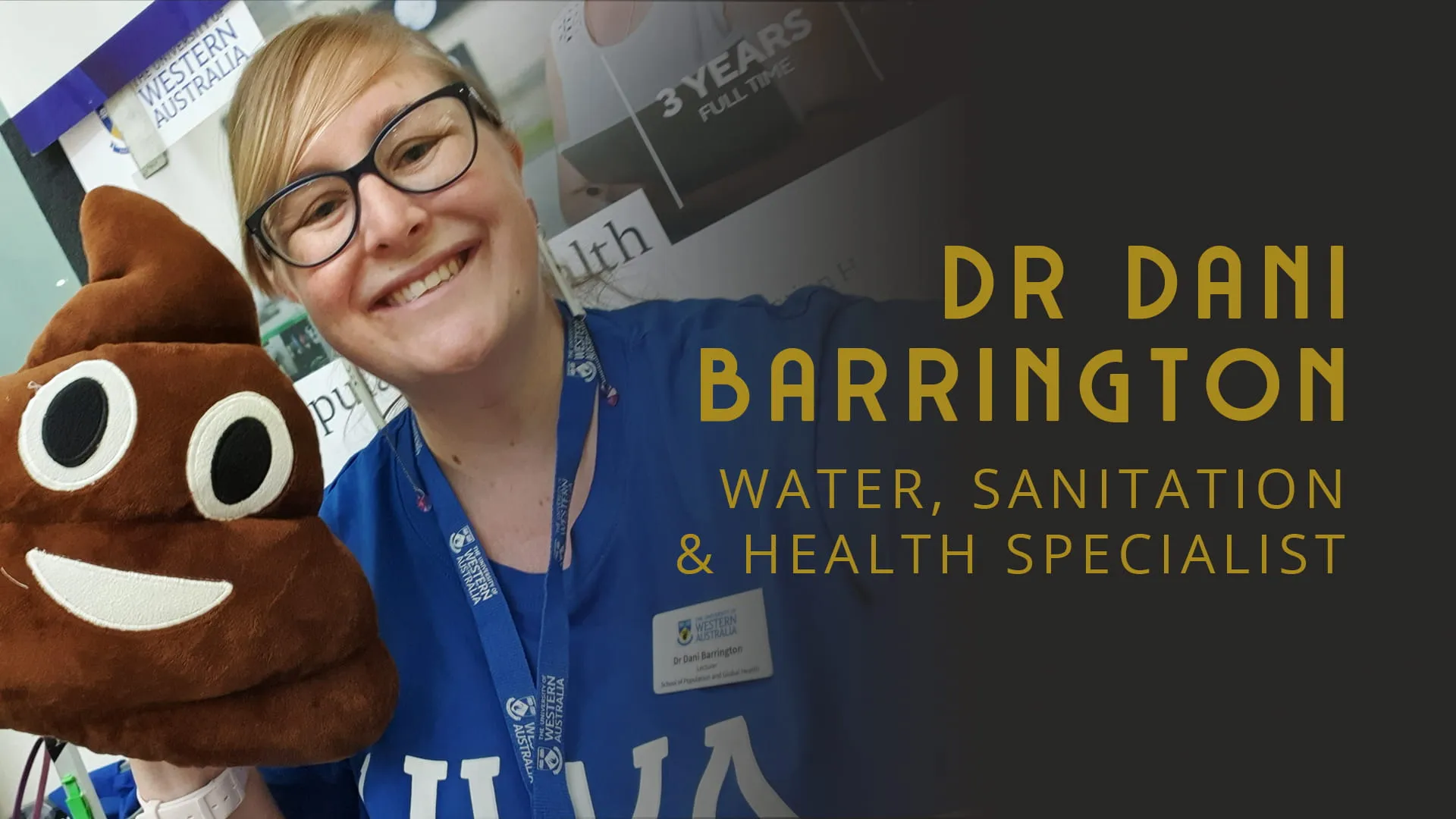Chimpanzees, Habitat Fragmentation, and Gut Biomes with Natasha Coutts
Natasha Coutts is a primatologist and Conservation Program Manager with the Jane Goodall Institute Australia. She is currently researching habitat fragmentation and its impact on endangered chimpanzee populations, and oversees programs with the Jane Goodall Institute that both support communities and contribute to the conservation of chimpanzees.
Join us as we talk about habitat fragmentation, developing a chimpanzee superhighway, and how empowering girls can lead to better economic, social, and ecological outcomes.
About Natasha Coutts
Natasha Coutts is a doctoral candidate with the School of Human Sciences at The University of Western Australia (UWA), a postgraduate fellow with UWA’s Africa Research & Engagement Centre, and a research affiliate of the Center of Excellence in Biology and Natural Resource Management at the University of Rwanda. Her research takes a multidisciplinary approach to understanding how habitat fragmentation can affect the gut microbiome of eastern chimpanzees (Pan troglodytes schweinfurthii) throughout Rwanda by drawing on methods and knowledge from fields such as socioecology, conservation biology, microbiology, population genetics, and bioinformatics. Her project includes two habituated and one semi-habituated chimpanzee communities: one in an undisturbed, continuous habitat and two in small, degraded forest fragments. These field sites represent all locations in Rwanda where chimpanzees currently remain, thereby providing a country-wide perspective on the processes under investigation.
From 2018 - 2019 Natasha was in the field collecting dietary and social data in conjunction with faecal samples and habitat surveys to allow her to identify not only the composition of the chimpanzee’s gut microbial communities, but also the potential mechanisms by which habitat fragmentation can act upon it. With more and more evidence linking the gut microbiome to health, this research is an important piece of the puzzle in understanding how changes in habitat can influence the long-term health and viability of endangered chimp populations. Ultimately she hopes her work will make a meaningful contribution to the conservation of chimpanzees by informing management decisions that promote preserving intact habitats and reconnecting isolated fragments.
Natasha holds a Bachelor of Biological Science (Advanced) from La Trobe University and a Bachelor of Science with First Class Honours in Anatomy & Human Biology from UWA.
In addition to her PhD research, Natasha is also the Africa Programs & Conservation Campaigns Manager with the Jane Goodall Institute Australia. In this role she oversees the administration and implementation of the projects JGIA supports including The Girls Empowerment Project in Uganda, Gombe Stream National Park in Tanzania, and Tchimpounga Chimpanzee Rehabilitation Center in Republic of Congo.
- ResearchGate: https://www.researchgate.net/profile/Natasha-Coutts
- Jane Goodall Institute Australia - Africa Programs: https://www.janegoodall.org.au/africa-programs/
Listen to the Podcast
Listen on Apple Podcasts, Spotify, iHeartRadio, Amazon Music, Castbox, Deezer, Goodpods, Overcast, Pocket Casts, TuneIn, Blubrry, Podcast Addict, Podchaser, JioSaavn, RSS , and other podcast platforms.
Watch on YouTube
- [01:07] Natasha's journey to primatology.
- [01:54] Conservation work with the Jane Goodall Institute Australia
- [02:33] Studying sciences with an Honours in anatomy and human biology
- [03:06] Natasha's interest in working with primates
- [04:32] Natasha's area of focus
- [04:37] Observations of gorillas in captivity and social dynamics
- [05:32] Chimpanzees: Habitat fragmentation and gut microbiome
- [06:37] What is habitat fragmentation?
- [07:24] The nature of the fragmentation.
- [08:24] How habitat fragmentation affects gut microbiomes
- [09:55] What we know from human gut microbiomes
- [10:06] How COVID has facilitated understanding about transmission
- [11:56] Creating focus with so many interrelated areas of investigation
- [14:14] Communities of chimpanzees in the fragmented habitats
- [15:37] The hypothesised impact of the fragmentation on gut microbiome
- [17:54] Interaction and territory
- [18:36] Working in Rwanda
- [19:34] Area with the highest elevation for chimpanzee populations
- [20:38] Natasha's work with the Jane Goodall Institute
- [21:57] The Africa Programs at the Jane Goodall Institute
- [22:20] The transition from direct chimpanzee projects to community based projects
- [23:03] Gombe Stream Research Centre
- [23:48] Tchimpounga Chimpanzee Rehabilitation Centre
- [24:21] Girls' Empowerment Project
- [24:36] How the education of girls can lead to ecological outcomes
- [26:37] How the Girls' Empowerment Project works towards these goals
- [26:45] Period poverty and menstrual impact on education
- [28:04] Capacity building
- [29:37] Working with communities
- [30:35] Community response
- [33:05] How work is progressing given COVID
- [34:04] Next project involving the chimps in Gombe National Park through to Burundi
- [34:43] Developing an ecological 'corridor' to connect fragments
- [35:22] How to create a corridor
- [35:30] Geographical modeling and analysis
- [35:43] Needs of the ecosystem
- [36:19] Regional economic benefits to the communities
- [37:54] An extension of the current Gombe work
- [38:21] 'Chimp Superhighway'
- [38:41] Wider ecological benefits to the ecosystem
- [38:47] Chimpanzees are forest architects
- [39:43] Bonus Question 1: What hobby or interest do you have that is most unrelated to your field of work?
- [40:07] Why surfing?
- [41:09] Bonus Question 2: Which childhood book holds the strongest memories for you?
- [41:50] Bonus Question 3: What advice you would give someone who wants to do what you do? Or what advice should they ignore?
- [42:46] Natasha's personal journey and unconventional route to academia
- [42:58] 'Less than ideal childhood circumstances'
- [43:35] Re-evaluating her direction
- [44:03] Enrolling at university as a mature-age student
- [45:21] The stigma imposed on one's personal circumstances
- [45:41] Everyone has the capacity to choose what they want to do with their life
- [46:21] Deviations from the norm add value
- [46:48] Science is driven by diversity
- [47:54] Humans learn through story
Topics/Resources/People Mentioned
- Jane Goodall Institute Australia
- gut microbiome (wiki)
- habitat fragmentation (wiki)
- Gombe Stream National Park (wiki)
- Gombe Stream Research Centre
- Tchimpounga Chimpanzee Rehabilitation Centre (wiki)
- Girls’ Empowerment Project
- capacity building (wiki)
- geographic information system (GIS) (wiki)
- UN-REDD Programme (wiki)
Additional Resources
- Chimps could hold key to good gut health (UWA News)
- Endangered chimpanzee conservation: saving our closest cousins (Chuffed)
Books
Books authored by Natasha Coutts or mentioned in our conversation.
Connect with Us
- @steampoweredshow
- @steampoweredshw
- @steampoweredshow
- @steampoweredshow
- @steampoweredshow
- @steampoweredshow
- steampoweredshow
Support STEAM Powered
Review Us
Please leave us a review on Apple Podcasts, Spotify, GoodPods, Podchaser, or your preferred podcatcher.
Become a Patron
Affiliate Programs
Start your own podcast or YouTube channel, or run panels and seminars with
Riverside.fm. Record up to 8
people in a session with up to 1000 audience members. You can record in advance
as I do, or you can livestream with the option to send it straight to Facebook,
Youtube, Twitter, or Twitch. There’s even a green-room for guests and live call
in for audience members. Afterwards, get separate video (up to 4K) and audio (up
to 48kHz) tracks per recorded participant for editing, none of that “active
speaker only” limitation. You know you’re in good hands with a service whose
client-base includes some heavy-hitters. Check out
Riverside.fm to see who else is on
board. Use promo code STEAM25 to get 25% off the first three months of your
subscription.
Music is “Gypsy Jazz in Paris 1935” by Brett Van Donsel.

